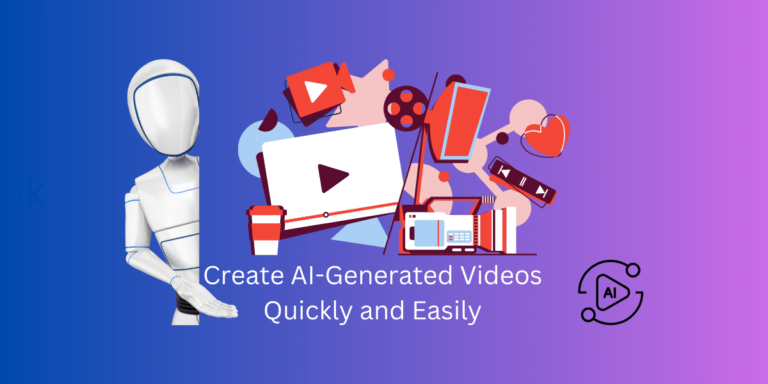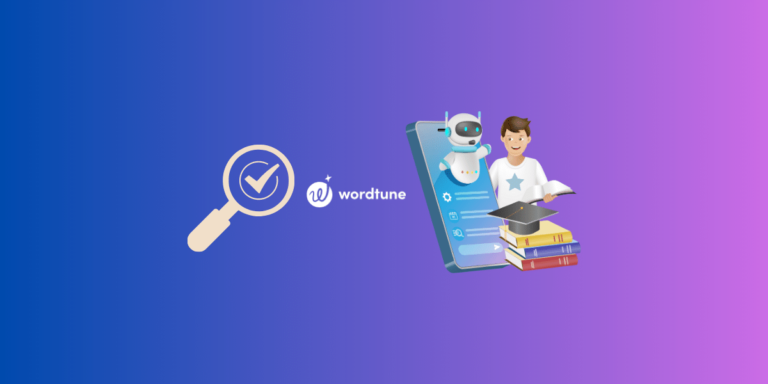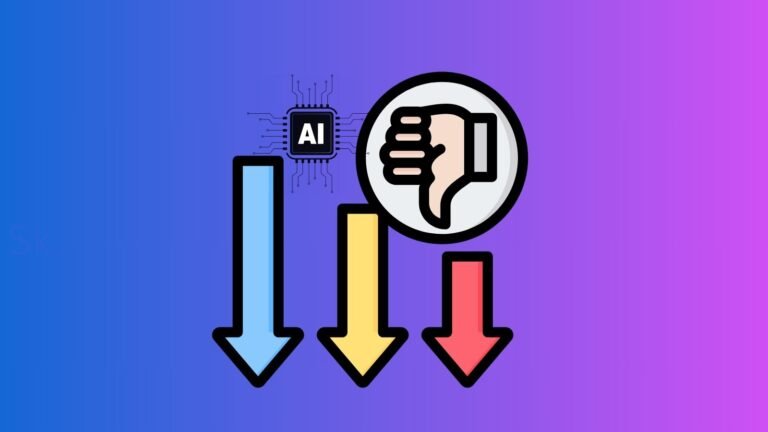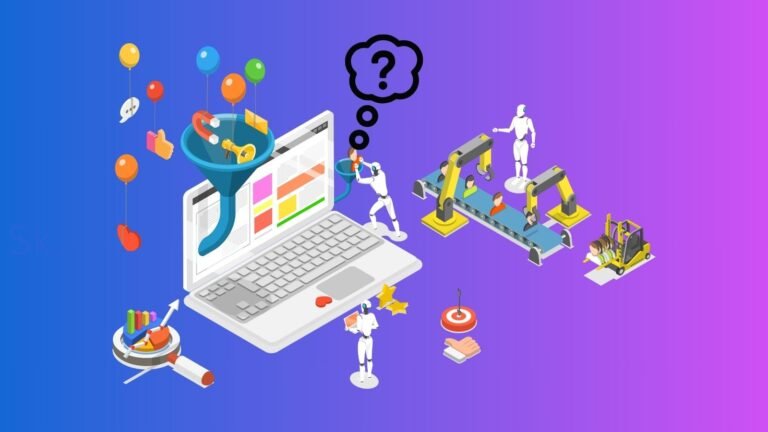How Businesses Are Using AI: Real-World Success Stories
Are you curious about how businesses are using AI? Artificial intelligence is transforming industries, with companies leveraging AI to drive innovation.
From enhancing customer experiences to optimizing operations, how businesses use AI is revolutionizing business.
This blog post explores real-world AI success stories. Learn how organizations use natural language processing, machine learning, and AI tools to boost efficiency and reduce costs.
Get inspired by AI’s transformative power and gain insights into harnessing this technology for your business.
Key Takeaway – How Businesses Are Using AI
- AI enhances efficiency and customer experience.
- Real-world uses chatbots, predictive maintenance, and fraud detection.
- Implementation needs planning, data, training, and ethics.
- Future: new tech, challenges, human-AI collaboration.
Enhancing Operational Efficiency
NLP for Customer Service and Engagement
AI-driven business transformation is revolutionizing customer service and user engagement, guiding in a new era of marketing and operations. (How Business and Marketing Are Changing with AI: A New Era)
NLP-powered chatbots and virtual assistants can understand and respond to customer queries in natural language, providing quick and accurate assistance around the clock.
These AI systems can handle routine inquiries, freeing human agents to focus on more complex tasks. Moreover, NLP enables businesses to analyze customer data, such as social media conversations, emails, and reviews, to gain valuable customer insights.
Companies can enhance customer experience, identify pain points, and improve data-driven products and services by understanding customer behavior and sentiment.
AI Supply Chain Optimization
Businesses use AI algorithms and machine learning to streamline and optimize supply chain operations. Predictive analytics can anticipate demand fluctuations, enabling proactive inventory management and minimizing stockouts or overstocking.
AI-powered supply chain optimization tools can also identify bottlenecks, optimize routing, and reduce transportation costs, resulting in significant cost savings and increased operational efficiency.
Predictive Maintenance with AI
In asset-intensive industries, such as manufacturing and energy, predictive maintenance powered by AI is a game-changer.
Machine learning models can analyze sensor data and historical data points to detect anomalies and predict potential equipment failures before they occur.
This proactive process minimizes downtime, extends asset lifespan, and enhances operational efficiency while reducing maintenance costs.
Automating Routine Tasks
AI technologies, including NLP, computer vision, and robotic process automation, enable businesses to automate repetitive tasks and mundane processes.
Organizations can redirect human resources towards more strategic and complex tasks by offloading these tasks to AI systems, boosting productivity and efficiency.
Improving Customer Experience
AI Chatbots for Customer Queries
Companies use AI and NLP to build smart chatbots. These AI-powered chatbots understand and respond to customer questions in natural conversations. They provide quick and accurate help 24/7.
By adding chatbots to customer service, businesses improve customer experience. Customers get immediate support, shorter wait times, and better satisfaction.
Personalized Recommendations
Businesses leverage machine learning algorithms to analyze customer data and provide personalized recommendations.
By understanding customer behavior and preferences, AI systems can suggest relevant products, services, or content tailored to individual customers. This personalized approach enhances customer experience, drives customer loyalty, and increases sales.
AI Fraud Detection
Fraud detection is a critical application of AI in various industries, including finance, e-commerce, and telecommunications.
AI models can analyze customer data, transaction patterns, and other data points to identify anomalies and flag potentially fraudulent transactions.
By implementing AI fraud detection systems, businesses can protect their customers, maintain trust, and minimize financial losses.
Enhancing Customer Satisfaction and Loyalty
AI technologies help businesses boost customer satisfaction and loyalty. AI-powered chatbots provide seamless support. Personalized recommendations and efficient fraud detection create a better overall customer experience.
Companies address issues and deliver more value by understanding customer insights through data. This strengthens customer loyalty and drives business growth.
Data-Driven Decision Making
Predictive Analytics for Forecasting
Businesses use predictive analytics and machine learning to accurately forecast demand for their products and services. AI models can identify patterns and make reliable predictions by analyzing historical sales data, market trends, and other data points.
This enables companies to optimize inventory levels, plan production, and allocate resources effectively, reducing cost overruns and inventory waste.
AI Risk Management
AI is revolutionizing risk management practices in industries such as finance and insurance. AI models can process vast amounts of data, including economic indicators, market dynamics, and customer data, to assess potential risks and their impact.
This data-driven approach empowers businesses to make informed decisions, mitigate risks, and seize opportunities proactively.
Customer Behavior Analysis
Understanding customer behavior is important for businesses to tailor their offerings and strategies. Machine learning algorithms can analyze customer data from various sources, such as purchase histories, online interactions, and feedback, to uncover valuable customer insights.
These insights enable companies to personalize customer experiences, identify new market opportunities, and make data-driven decisions that drive growth and customer loyalty.
Data-Driven Decisions in Industries
The power of AI and data analytics is transforming decision-making processes across various industries. In retail, AI systems analyze customer data and market trends to optimize product assortments and pricing strategies.
Data-driven insights drive predictive maintenance and supply chain optimization in manufacturing. Healthcare organizations leverage AI for medical image analysis, patient outcome predictions, and resource allocation.
By embracing data-driven decision-making, businesses can gain a competitive advantage and drive sustainable growth.
Healthcare and Medical Applications
Medical image analysis and diagnosis
The healthcare sector uses AI for medical image analysis, such as X-rays, MRIs, and CT scans. AI algorithms and computer vision techniques can accurately detect and diagnose diseases, tumors, and other medical conditions from these images.
This speeds up the diagnostic process and reduces the risk of human error, leading to improved patient outcomes.
Patient care and treatment optimization
AI systems are pivotal in optimizing patient care and treatment plans. AI models can provide personalized treatment recommendations, predict potential complications, and suggest preventive measures by analyzing medical data, including patient histories, lab results, and genomic information.
This data-driven approach empowers healthcare professionals to make informed decisions and deliver more effective and tailored care.
Drug discovery and development
AI technologies are transforming the process of drug discovery and development. Machine learning algorithms can analyze vast amounts of data, including molecular structures, biological pathways, and clinical trial results, to identify potential drug candidates and predict their efficacy and safety.
This accelerates the drug development process, reduces costs, and increases the chances of successful drug approvals.
Electronic health records management
Healthcare organizations are embracing AI to streamline the management of electronic health records (EHRs). NLP techniques can extract relevant information from unstructured data, such as physician notes and medical reports, and integrate it into structured EHR systems.
This improves data accessibility, reduces administrative burdens, and improves care coordination among healthcare providers.
Embracing AI in Other Industries
Retail and e-commerce
Retail and e-commerce companies use AI to improve customer experience and sales. AI chatbots help customers with product questions and suggestions. NLP enables smart search and personalized product recommendations based on customer data.
Computer vision and AI algorithms allow visual search, where customers find products by uploading pictures. Predictive analytics also helps optimize inventory and pricing.
Finance and banking
AI is changing finance and banking, from fraud detection and risk management to personalized financial planning and investing advice.
AI models analyze large data like market trends, customer transactions, and economic indicators to identify risks and opportunities. NLP powers virtual assistants to handle customer questions and provide financial guidance.
Manufacturing and logistics
In manufacturing and logistics, AI systems optimize supply chains and predictive maintenance. Machine learning algorithms analyze production data and sensor readings to predict equipment failures, reducing downtime and maintenance costs.
Computer vision and robotics enable automated quality control and efficient material handling. Predictive analytics optimizes inventory, production planning, and transportation routing.
Human resources and recruitment
AI transforms HR and recruitment. Natural language processing enables intelligent resume screening and job matching. Machine learning analyzes candidate data and past hiring to identify top talent.
AI chatbots assist job seekers with inquiries and personalized career advice. Predictive analytics helps forecast talent needs and retention strategies.
Successful AI Implementation
Planning and System Integration
Successful AI implementation requires careful planning and seamless integration with a company’s existing systems. Businesses must assess their current processes, identify areas where AI solutions can drive value, and develop a comprehensive roadmap.
Integrating AI into legacy systems and workflows is important to minimize disruptions and ensure a smooth transition.
Data Quality and Preparation
The success of AI models heavily relies on the quality and quantity of data. Businesses must ensure they have access to clean, relevant, and diverse data points to train their AI algorithms.
This often involves data cleaning, formatting, and feature engineering processes carried out by data scientists to prepare the data for machine learning tasks.
Training and Upskilling Employees
Companies embracing AI must invest in training and upskilling their workforce. Employees need to understand the capabilities and limitations of AI technologies and how to interact with and leverage these tools effectively.
This fosters a culture of innovation and ensures that the human-AI collaboration is seamless and productive.
Ethical Concerns and Risks
Implementing AI raises important ethical concerns and potential risks that businesses must address. These include issues related to data privacy, algorithmic bias, transparency, and accountability.
To address the risks of AI in business, companies need strong governance, ethics, and risk management practices for responsible AI deployment. (Disadvantages of AI in Business: Risks You Should Know)
The Future of AI in Business
Emerging Trends and Technologies
Artificial intelligence is rapidly evolving, with new trends and technologies emerging constantly. NLP is advancing, enabling more human-like conversational abilities in AI systems.
Computer vision and machine learning are becoming increasingly sophisticated, opening up new possibilities in areas like autonomous vehicles and advanced robotics.
Additionally, integrating AI with other cutting-edge technologies, such as the Internet of Things (IoT) and blockchain, is poised to unlock new realms of efficiency and innovation.
Challenges and Limitations
While the potential of AI is vast, there are also significant challenges and limitations to address. Ensuring the transparency and ethical use of AI models is important, as is mitigating the risk of bias and preserving data privacy.
Additionally, the need for large, high-quality data sets and computational resources can be a barrier for some businesses, especially smaller organizations. Continuous research and development are necessary to overcome these hurdles and unlock the true potential of AI.
Human-AI Collaboration
As AI advances, it is essential to recognize that it should augment and enhance human capabilities rather than replace them entirely. The future lies in seamless human-AI collaboration, where humans and intelligent systems work together, complementing each other’s strengths.
Businesses can achieve unprecedented innovation and success by leveraging AI’s analytical power and combining it with human creativity, empathy, and decision-making abilities.
Conclusion
The real-world success stories explored in this blog post show the transformative power of AI across various industries.
The benefits of AI in business span from operational optimization and improved customer experiences to data-driven decisions and healthcare advancements, driving competitive advantage and growth. (What Can AI Do for My Business? Discover the Benefits of AI)
As AI technologies evolve, businesses that adopt this revolution and invest in responsible AI implementation will be well-positioned to succeed.
Frequently Asked Questions
What Are the Main Benefits of AI for Businesses?
AI automates tasks, improves efficiency, enhances customer experiences, and provides data-driven insights.
Is AI Suitable for Small Businesses?
AI tools are increasingly affordable and can help small businesses improve operations and customer service.
What AI Tools Are Best for Marketing and Sales?
Popular tools include chatbots, predictive analytics, customer relationship management (CRM) systems, and content creation tools.
How Does AI Reduce Operational Costs?
AI automates repetitive tasks, optimizes processes, and reduces human error, saving costs.
What Are the Challenges of Implementing AI in Business?
Challenges include high initial costs, data privacy concerns, integration with existing systems, and the need for skilled personnel.
How Does AI Enhance Cybersecurity for Companies?
AI detects and responds to threats faster, identifies vulnerabilities, and automates security protocols.





